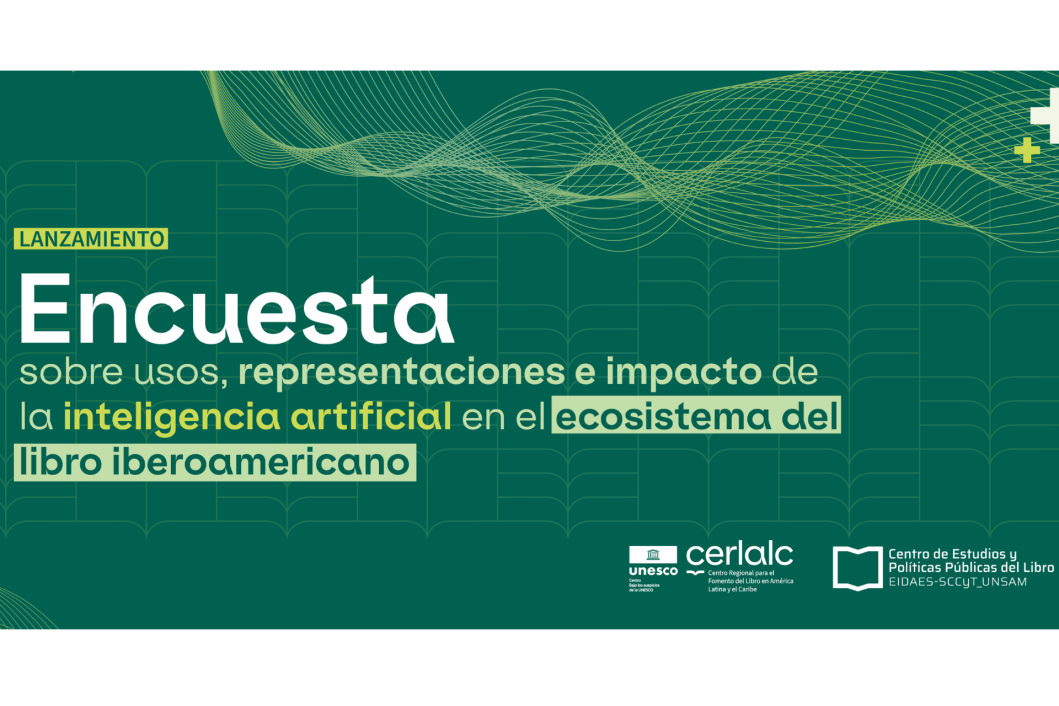Last month, the IAF joined the launch of the survey AI: Uses and Representation in the Ibero-American Book Ecosystem. This study was organized by the Regional Center for the Promotion of Books in Latin America, the Caribbean, Spain, and Portugal (CERLALC), in partnership with the Center for Book Studies and Public Policies at the University of San Martín in Argentina. It was supported by 49 sectoral organizations across the region, as well as two international bodies, IAF and IFRRO, who were acknowledged for their invaluable contributions.
The release of ChatGPT in late 2022 triggered widespread analysis and public debate concerning the impact of generative AI across numerous sectors, including the book industry.
Generative AI has given rise to two distinct viewpoints: on one side, it is perceived as a powerful tool with the potential to significantly enhance productivity and efficiency within book production, distribution, and consumption. On the other side, there is widespread concern regarding its impact on human labour rights, the proliferation of low-quality, standardized content, and the complex questions it raises around authorship and unauthorized use.
In light of these issues, this comprehensive and collaborative survey is considered especially timely. Its objective is to collect insights directly from a wide range of stakeholders within the Ibero-American publishing sector on AI usage, perceptions, impacts, and associated concerns.
The survey consists of a general section alongside specialized sections for distinct stakeholders in the book value chain, including authors, translators, designers, illustrators, publishers, and booksellers. This format enables CERLALC and the Center to gather precise, high-quality data, facilitating a nuanced understanding of the status and impact of AI across the region and within individual countries, given the considerable variation in AI adoption levels.
Follow this link to join the survey: https://es.surveymonkey.com/r/iaylibro.
The findings will provide an essential basis for regional governments to deliberate on public policy measures, as well as ethical and legal frameworks, to harness the potential of AI while addressing its direct and indirect implications for the rights of individuals engaged in the book ecosystem.
A preliminary report on the results is anticipated in the coming year.

